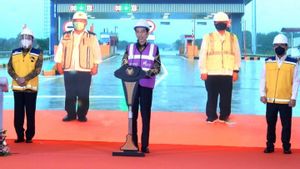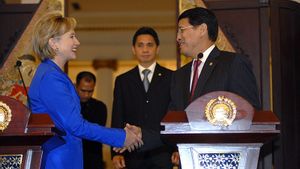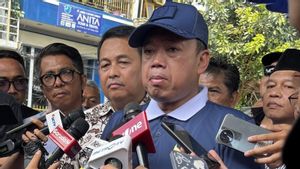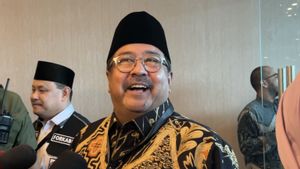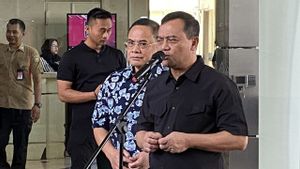JAKARTA - Today, 24 years ago, September 26, 1998, President Bacharuddin Jusuf Habibie signed the Bunaken Declaration. The signing was carried out by Habibie in Manado, North Sulawesi. The declaration became one of the milestones that reminded Indonesia's marine wealth.
Moreover, recently development only leads to the land sector. Efforts to advance the maritime sector are stagnating. Therefore, efforts to advance the maritime sector are re-invigorated, Habibie thought.
The echo of Indonesia's greatness as a maritime country is second to none. The fact has resonated everywhere. Indonesia is the largest archipelagic country in the world. This narrative is evidenced by the fact that Indonesia has 17,000 islands stretching for 5 thousand km.
That is, if Indonesia's marine potential can be utilized optimally, Indonesia's dream of becoming a big country is not just an empty message. The dream must be accompanied by real efforts. Can't not. Bung Karno himself had even considered the importance of Indonesia's maritime development affairs.
According to him, the maritime spirit must be ignited. Maritime is the key for Indonesia to achieve the image of a strong, prosperous and peaceful country. In that context, Bung Karno wanted Indonesia to have a strong maritime fleet. The dream was accomplished.

At that time, Indonesia had 12 whiskey-type submarines. The ship was alerted for the Trikora (Tri Komando Rakyat) operation to seize West Irian. The presence of the submarine for Indonesia is predicted as a country with the strongest naval fleet in Southeast Asia. However, the strengthening of other maritime fields has not yet had time to run. All because Soekarno suddenly stepped down.
“However, President Soekarno has not had enough time to change the nation's orientation from a land-based to a maritime-based concept. Not to mention that the republic's young age and continued to be disturbed by political, economic, and national security stability at that time, made President Soekarno's maritime vision not be implemented optimally," said Dickri Rizanni Nurdiansyah in the book "Strategi dan Pertahanan Maritim Nusantara" (2020).
The leadership of Bung Karno's successors, Suharto and his New Order did not bring much change to the maritime sector. Land-oriented development is still the prima donna. The new narrative of change was echoed when Habibie replaced Suharto as Indonesia's number one person.
Habibie sees maritime power as more than just jargon. For him, maritime is the real strength of Indonesia. Maritime-oriented development was also launched by him. He also emphasized the importance of maritime affairs by signing the Bunaken Declaration in Manado, North Sulawesi, on September 26, 1998.

The contents of the declaration include, among other things, the commitment of the Indonesian people to protect, maintain and preserve the oceans. Even the potential wealth contained in the marine world must be used optimally for the progress of all Indonesian people.
“The Bunaken Declaration was declared by President B.J. Habibie on September 26, 1998, coincided with the declaration of 1998 as the Indonesian Maritime Year. This declaration is one of the milestones for Indonesia's marine development and is an effort to reuse the sea after the development carried out in the previous era was more land-based (land-based development). It is hoped that from this declaration all levels of government and society will pay attention to the development, utilization, and maintenance of Indonesia's marine potential,” explained Endang Bidayani in the book Ekonomi Sumber Daya Pesisir yang Tercemar (2014).
VOIR éGALEMENT:
The English, Chinese, Japanese, Arabic, and French versions are automatically generated by the AI. So there may still be inaccuracies in translating, please always see Indonesian as our main language. (system supported by DigitalSiber.id)



